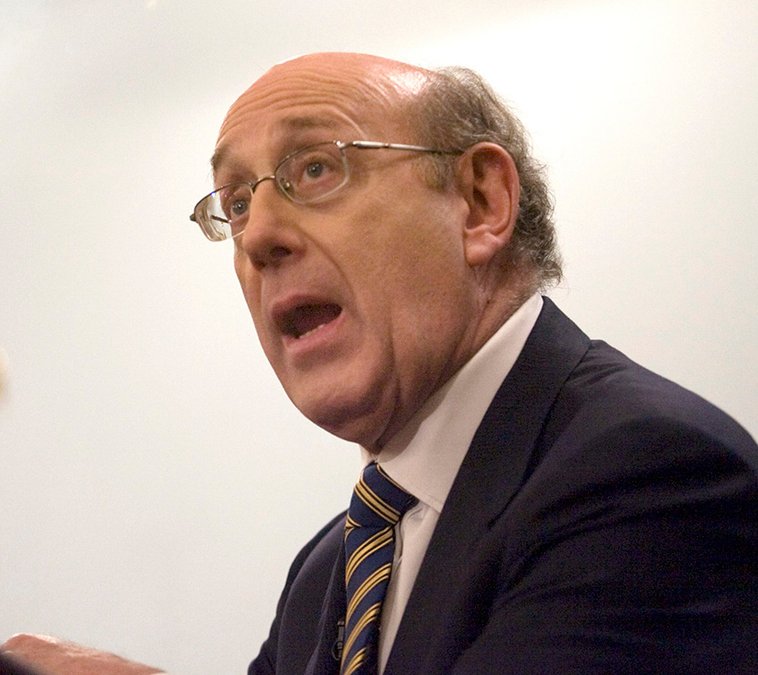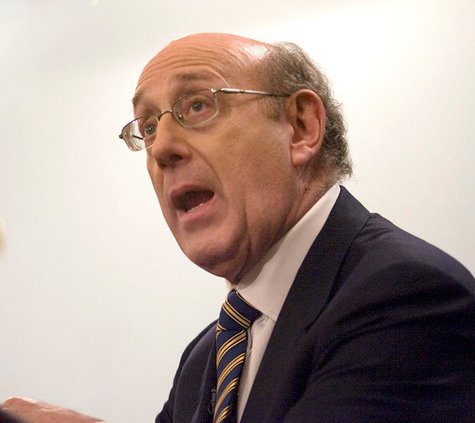Monday morning, Jan. 13, The United Methodist News Service hosted a livestream event on its YouTube channel to answer the questions of many UMC congregants who were surprised by the Jan. 3 announcement of a protocol designed to provide a path for separation of the church over the issue of LGBTQ inclusion. The discussion included the 16 members of the team that developed the proposal and world-renowned attorney Kenneth Feinstein who mediated the process.
United Methodist Churches in Kansas belong to the Great Plains Conference of the United Methodist Church. A letter to the clergy of the Great Plains Conference from its Resident Bishop, the Rev. Dr. Ruben Saenz Jr. dated Sunday, Jan. 12, appeared on the conference website on Monday afternoon following the livestream. It noted that The Protocol of Reconciliation & Grace Through Separation (The Protocol) is different than the many other proposals that have already come before the church because it is a negotiated settlement agreed to by opposing sides of the debate on human sexuality.
“The protocol has received cautious yet hopeful support from across the denomination, and it validates and expresses the reality and divergent directions that already exist in the denomination,” Saenz stated, adding that it also offers a feasible plan of execution.
Saenz summed up the proposal.
“The Protocol supports the empowerment of traditional congregations in the current United Methodist Church to create a new Wesleyan movement. The remaining, or post-separation progressive United Methodist Church, would remove restrictive language against same-sex marriage and the ordination of LGBTQ persons. Central conferences, annual conferences, and local congregations can decide whether to stay with the post-separation United Methodist
Church, join the new traditional expression of Wesleyan Methodism, or decide to become independent of either denomination.”
Saenz called for clergy to resist the temptation to arrive at quick answers and make hasty personal or group decisions.
“So much hangs in the balance, not only for our sakes but for the sake of the people in our mission field that need to know the love and grace of God in Jesus Christ,” he said.
He also acknowledged The Protocol may not be a perfect plan, but, “it may be what helps us move beyond ‘winner’ and ‘loser’ scenarios and stop the loop of crippling self inflicted harm to the denominational body because of decades-long acrimony over matters of human sexuality.”


Discussion framed need for mediation
The livestream lasted an hour and 14 minutes, and the archived recording can be viewed at https://youtu.be/q2wZQyAjU6M.
The proposal, titled the “Protocol of Reconciliation & Grace Through Separation,” will be one of several proposals to be considered at the UMC General Conference in Minneapolis in May. Its authors represent the three main theological perspectives of the church, recognized as traditionalist, centrist and progressive. With the help of Feinstein, the group was uniquely able to come to a unanimous agreement, something that the denomination was unable to achieve previously over decades of wrestling with the question of inclusion.
While legislation is currently being drafted, and constitutionality of The Protocol is weighed, it essentially provides a path for traditionalists to separate from the United methodist Church. It also provides “seed money” for churches that choose to strike out on a new path outside of Methodism to separate. All decisions must be made within a specified period of time.
The United Methodist Church’s General Conference will meet May 5-15 in Minneapolis, Minn. Delegates from around the world will consider this and a number of other proposals for splitting or restructuring the church.
Participants shared the motivating factors that led to the convening of the group that developed the proposal.
Bishop John Yambasu of Africa described his feelings following the 2019 General Conference.
“It was a catastrophe for the entire denomination and a poor witness of who we are as United Methodists,” he said, adding that the proposals offered at the 2019 GC were “U.S. centric.” He anticipates 100% support from Africans for the Protocol at the 2020 General Conference.
He visited with The Rev. Junius Dotson, UMC Next, and they agreed, there had to be a better way.
Dotson, provided his U.S. centrist perspective. The Protocol provides space for UMC churches and pastors to have different perspectives on marriage, and that is okay, he said.
“We are unified in our desire to be a church that welcomes all persons and creates safe spaces,” he said. The Protocol removes of the language and policies that discriminate and treat LGBTQ persons as second class citizens. It also provides space for the United Methodist Church to continue, which all parties are in favor of. Consideration of all plans (in 2019) seemed to be towards dissolution of the church, which would be catastrophic to the church’s ministries in ways that they could not measure or calculate.
Traditionalists recognized the need for separation when the decision made at the 2019 General Conference failed to alleviate the conflict that existed between the three perspectives, according to The Rev. Keith Boyette, president, Wesleyan Covenant Association.
According to the UMW News, The United Methodist Church’s official positions, at the conclusion of the 2019 Genaral Conference, are that all people are of sacred worth; the practice of homosexuality is incompatible with Christian teaching; “self-avowed practicing homosexuals” shall not be ordained as clergy; and same-sex weddings shall not be performed in the denomination’s churches nor by its clergy.
That plan was to go into effect Jan. 1, and left many centrist and progressive leaning clergy fearful for their future in the denomination. After the 2019 conference concluded, it was clear to Boyette and other traditionalists they were not prepared to voluntarily leave the church and would continue to advocate for their firmly held convictions and beliefs, he said.
“We saw that if we did the same, it would result in continuing the same destructive cycle,” Boyette said. He characterized The Protocol as “an amazing collaboration among people who have serious disagreements, but share a love of the church.”
Janet Lawrence, executive director, Reconciling Ministries Network said those who support the inclusion of the LGBTQ community are hopeful, more so than in the past. But skepticism remains. She appreciates the article of abeyance included in the document. The abeyance reduces the risk of harm to LGBTQ community and their supporters. It halts any punitive actions concerning the LGBTQ question until the end of the protocol process.
“Complaints can still be filed, but those receiving them would just hold them,” she said.







